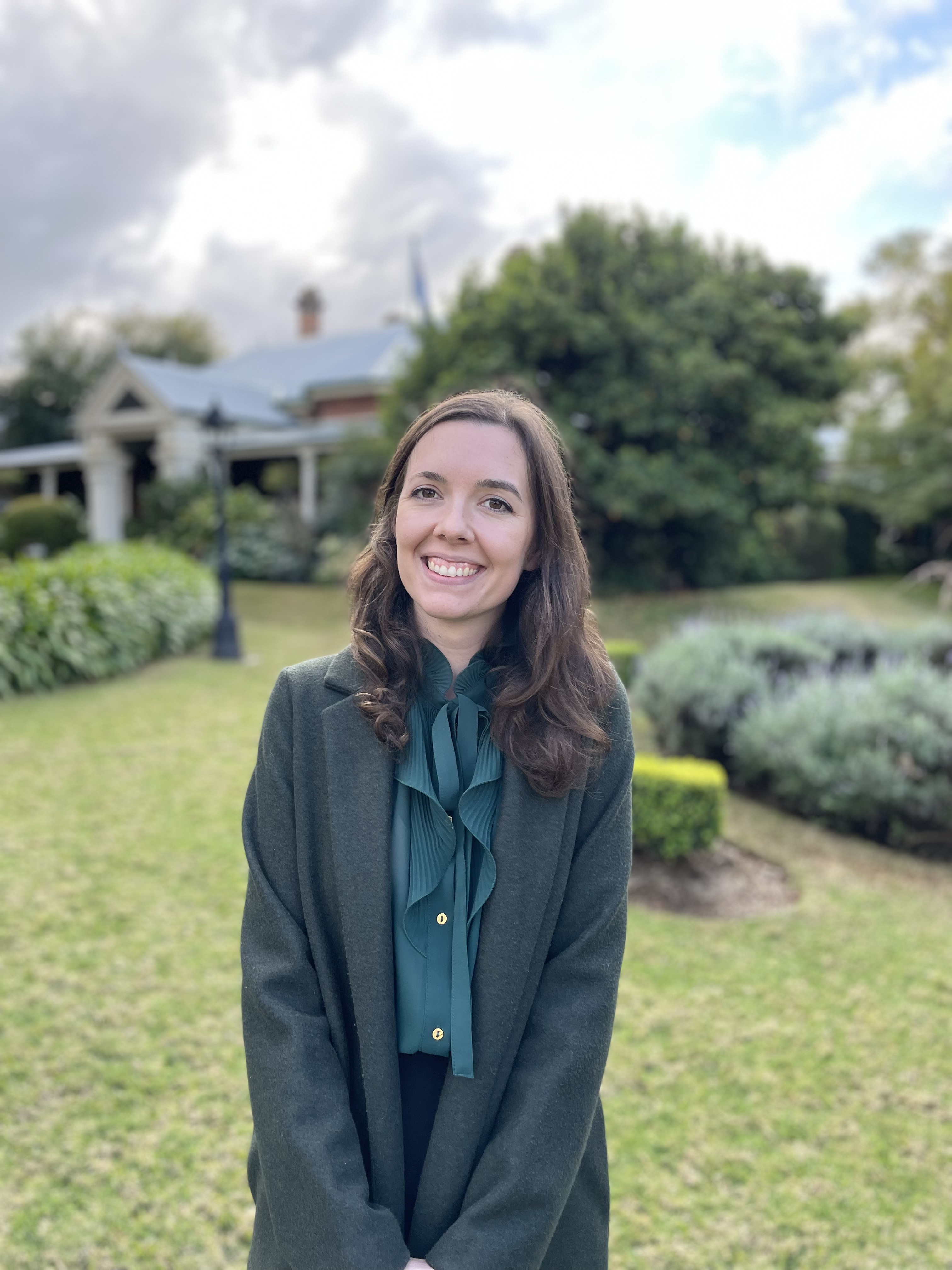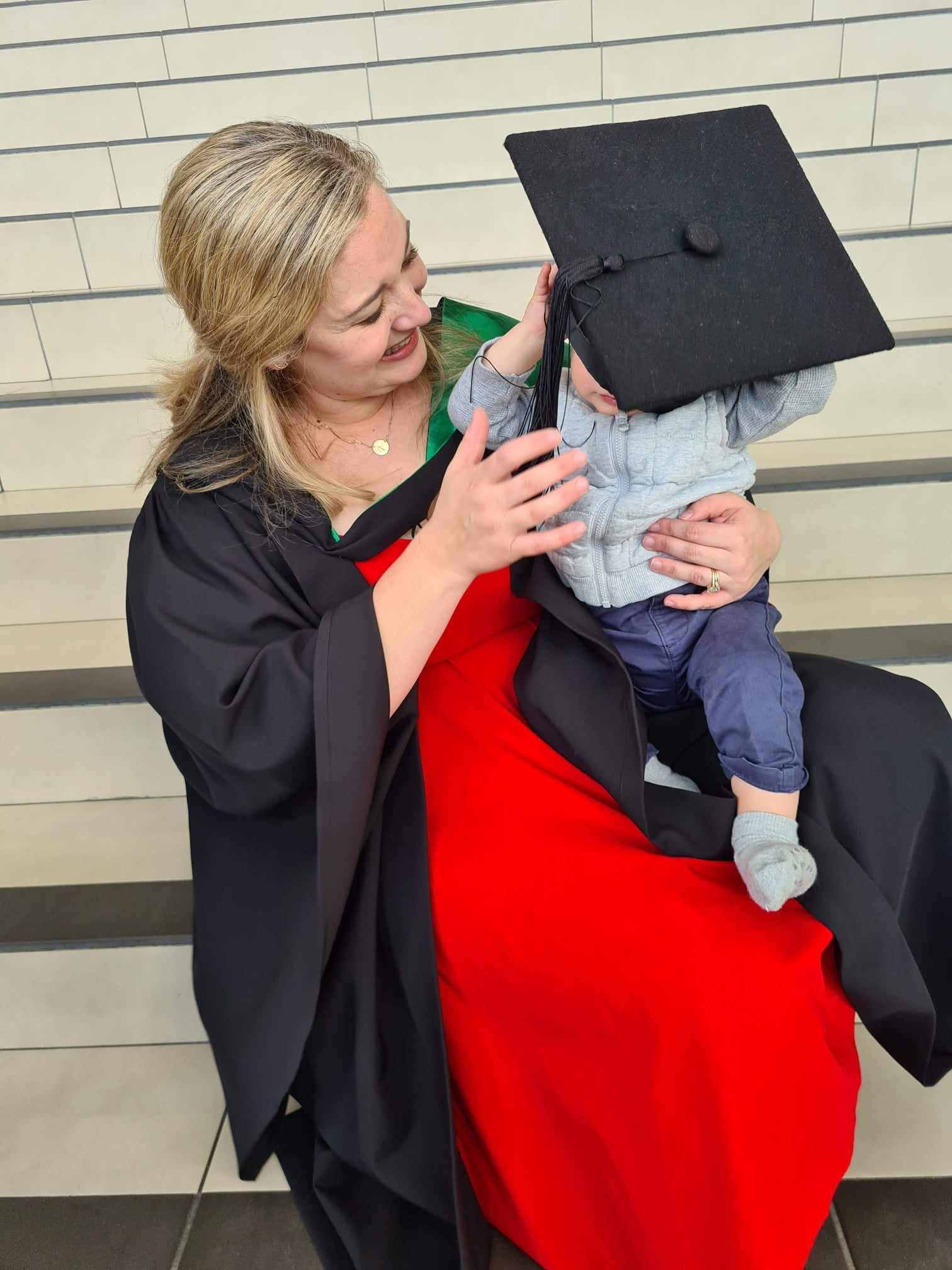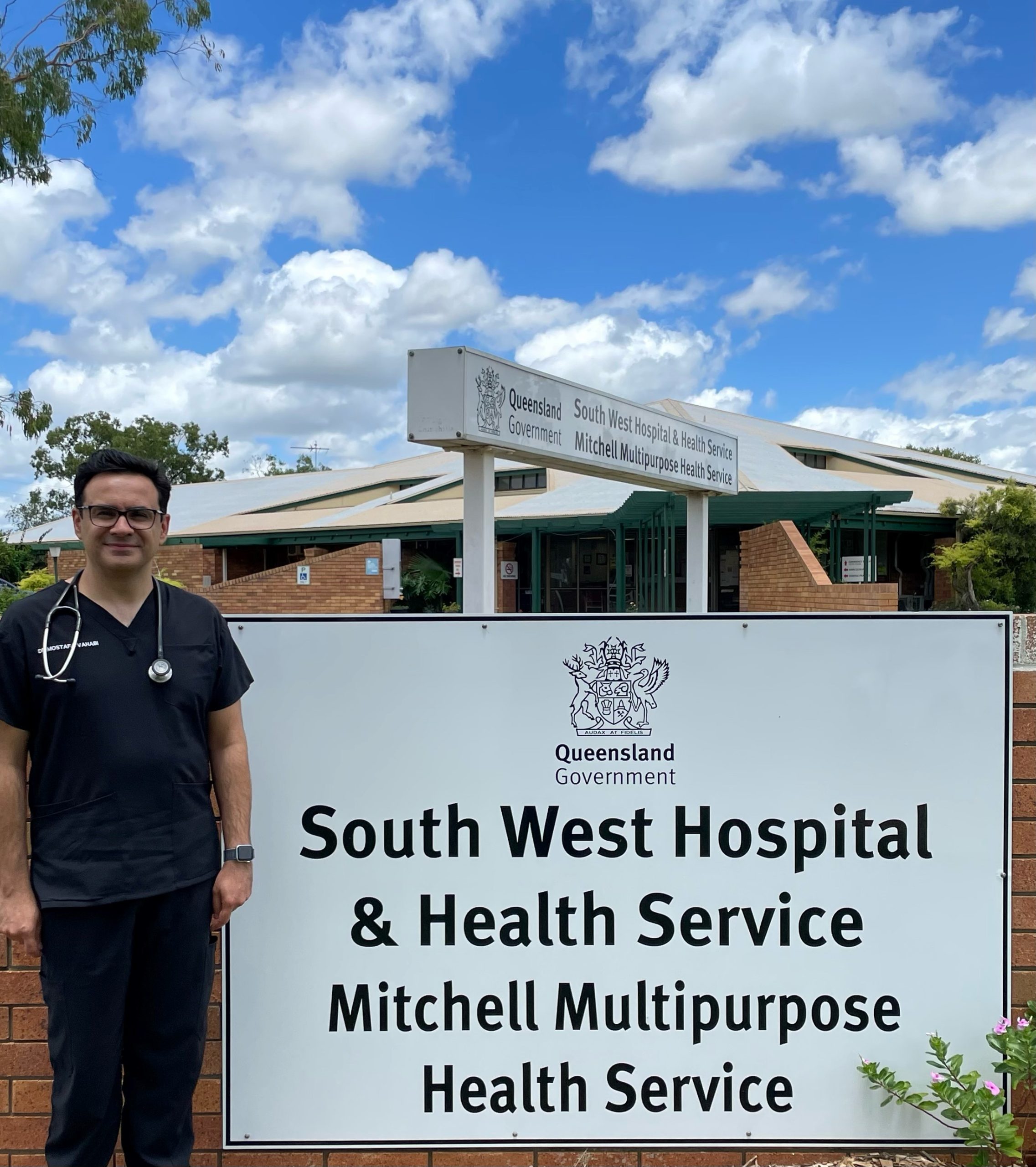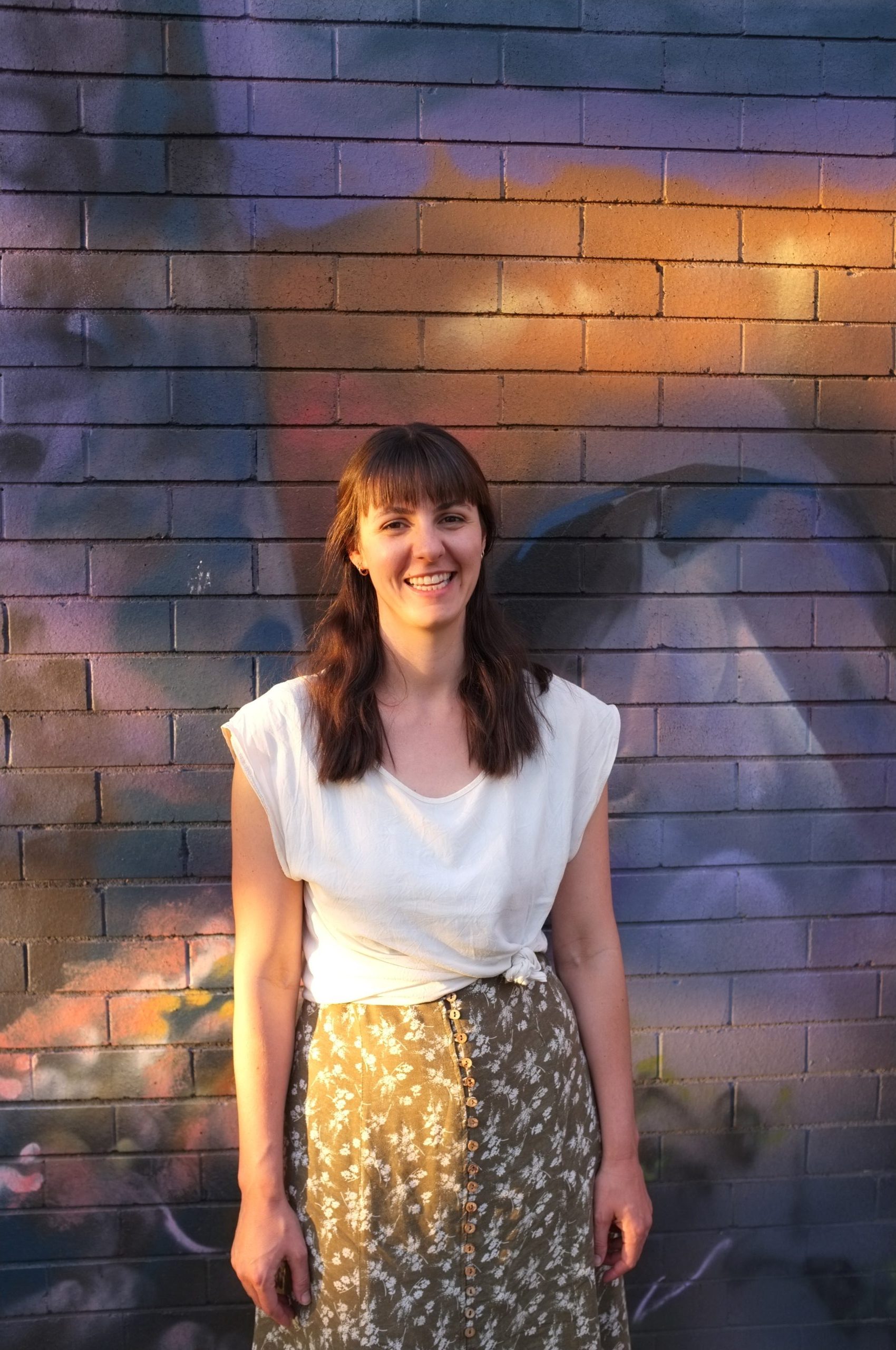As a medical student you are faced with the ultimate question, what kind of doctor do I want to be? With so many endpoints to choose from, deciding on your training pathway can be challenging. Sometimes finding the right fit may take time. After graduating, you may try a few different placements before you find your calling.
If your path leads you toward the unique work of Rural Generalism, the Queensland Rural Generalist Pathway offers both intern and postgraduate entry. Therefore, it doesn’t matter how many years it’s been since graduating medical school; it’s never too late to join the QRGP tribe.
Dr Annabelle Hughes joined the Pathway as a postgraduate entrant in 2020 and is currently undertaking Advanced Skills Training (AST) in emergency medicine. Annabelle shares her journey as a postgraduate entrant and what led her to pursue a career as a Rural Generalist.
Let’s start from the beginning
After medical school, I pictured myself pursuing paediatrics or obstetrics and gynaecology and set up my residency years to reflect this aspiration. I completed my intern year at the Mater Hospital in Brisbane and was lucky enough to do a paediatric Junior House Officer (JHO) year at Queensland Children’s Hospital. I was halfway through my JHO placement when I started to rethink my direction. While my colleagues were busy applying to the paediatric program, I felt a tug that it wasn’t the right path for me. I actually remember walking into the elevator with an elderly man and I had a lightbulb moment; if I pursued the paediatric pathway, I wouldn’t be able to treat and help patients of all ages. That felt like a loss to me, as I love helping people of all backgrounds and life stages.
The broad scope of practice that would allow me to be part of a patient’s whole journey pulled me toward Rural Generalist Medicine. It was the perfect blend of the specialities I love and provides a good mix between procedural and non-clinical work. Being able to improve healthcare access to rural and remote communities was the ultimate drawcard.
I want to be a Rural Generalist, but how?
During medical school I was exposed to elements of rural practice but had very limited knowledge on how to become a Rural Generalist; no one in my circle was pursuing this endpoint. I jumped online and compared the rural medical colleges and along the way came across the Queensland Rural Generalist Pathway. After receiving personal feedback from friends of friends and reflecting on my own needs, I called and spoke to the QRGP team directly. They clarified what the program was, eligibility criteria, and explained to me how Rural Generalist training could work for me as a postgraduate. After the conversation I felt at ease and submitted my application. The next thing you know, I was welcomed into the tribe.
Commencing as a postgraduate
The greatest benefit of joining the QRGP is being connected with a Rural Generalist Training Advisor (RGTA). My RGTA has checked in with me during each step of my training and provided me with their own life advice to help guide me on my own individual journey. It is reassuring knowing I have someone I can reach out to with real world experience. They have walked in my shoes and have conquered challenges that I may one day face. The high level of trainee support is what makes the Queensland Rural Generalist Pathway special.
There are many other benefits, including a variety of workshops available depending on your stage of training. These include Advanced Skills Training Introductory Workshops, Rural Generalist Vocational Preparation Workshop, and the Step Up Leadership Program. There are many opportunities to connect with the greater QRGP community and develop networks and connections with like-minded people.
My advice to those considering postgraduate entry
The best way to see if Rural Generalism is the right fit for you, is to try it out. Many Queensland hospitals offer a rural experience program that provides a ‘taster’ to rural practice, and there are many opportunities for private general practice placement also. Contact your Medical Education Unit and see what rural experiences or rural terms they offer and enrol in a placement.
Undertaking the Clinical Rural Skills Enhancement (CRuSE) workshop was invaluable for me. This workshop is designed to prepare, support, and build a Junior Medical Officer’s skills and confidence in readiness to undertake a rural placement. I undertook the workshop prior to my first rural term in Dalby and found it advantageous. The simulations and practical elements helped prepare me for rural practise. I enjoyed this rural term so much that I ended up spending 12 months in Dalby the following year, completing my GP training.
If you are considering applying to QRGP as a postgraduate, I would recommend that you speak to the QRGP team directly to see if it’s the right fit for you. Also talk to other trainees and Rural Generalists about their experiences and day-to-day work life (the team can put you in contact with RGs if you don’t know any). Ask them questions about the logistics of the training and try to envision if the pathway will suit your lifestyle and needs. It’s not too late to join as a postgraduate and the flexibility of the program means you can often gain recognition of prior learning with the medical colleges for training you may have already completed in other areas.
My future as a Rural Generalist
My goal is to always be a broadly skilled and compassionate practitioner, working across a variety of presentations, patient cohorts, and different settings. I hope to work toward health equality for rural and remote Australian communities and would especially love to contribute to the health of Indigenous communities. After I complete my Advanced Skills Training in emergency medicine and Fellowship exams this year, I would love to do some Indigenous outreach work in the Northern Territory. Rural Generalism is flexible and can take you anywhere, and I look forward to my next adventures.
Do I regret the time I spent undertaking other training before deciding on Rural Generalism? Absolutely not. My early resident years created confidence in my skills and abilities dealing with paediatric presentations, undoubtedly contributing to my skillset as a Rural Generalist in the future. You can always build on and use your experience to propel your Rural Generalist training, and it’s never too late to embrace a change of direction.
Dr Annabelle Hughes | Rural Generalist Trainee







